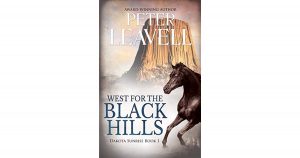by Peter Leavell, @PeterLeavell
I met a girl, Tonya. Yowzers. I liked her, and on our first date, I could do no wrong. However, the next time we got together, I couldn’t seem to say anything right.

Appropriately annoyed, she challenged me.
I had two options—react and defend myself, or dig deep, consider her comments, and give a true account of myself.
Option #1 Reactionary. “You don’t get me. Fix yourself.”
Option #2 Deep Truth. “I was trying to make you smile because I think it’s beautiful and I love seeing you light up. I’d like to learn how to best to respect your feelings.”
As an 18-year-old male, I muddled my way somewhere between the two and managed to convince her to marry me.
Now older, I find the reactionary stance to not only be problematic, but fraught with error.
Jesus Wore a Dress
Or more accurately, Jesus wore a himation—a Greek style mantle or robe. What if pants were introduced and He spent His time arguing and reacting about fashion? What if, in the Sermon on the Mount, he discussed how women might lust after men in pants? Instead, He spoke deep truths—He talked about the state of the heart of the person who lusts. He wasn’t reacting to modern politics and issues, instead, He took part in discussing the human condition.
Reactionary
C.S. Lewis wrote in an article ‘The World’s Last Night,’ “For my own part I hate and distrust reactions not only in religion but in everything. Luther surely spoke very good sense when he compared humanity to a drunkard who, after falling off his horse on the right, falls off it next time on the left.”
Reactionary writing is important for politics. But as I look back on the writings of last year’s modern political reactionists, they come across less as spokespeople for freedom, and more loud entertainers.
If Jesus reacted to Roman oppression, religious progressivism, and eschatological differences, His work would lack the timelessness of T/truth. In other words, Jesus ignored modern shallow debates and went for the deep heart issues. He wasn’t reactionary.
If We Don’t React, What Do We Do?
Reactionary thought belongs on social media, where we can endlessly debate things we’ll regret in a year.
As a kid, my first reactionary fight—that I went all-out for—was against Bill Clinton. Character matters. Having an adulterer in the White House would end America as we knew it. If I had written a novel that focused on my reaction to Bill Clinton, the book wouldn’t sell for very long and be rather silly today. Instead, writing about the heart of an adulterer, the pain it causes, and the pitfalls of adultery would make a stronger case for timeless truths that outlast a single administration.
Today, masks are the hot topic. Should I write the debate into my novel? Instead, I prefer to find the deep truths behind wearing a mask or not wearing one, then put the examples in a timeless story. A parable that might express kindness to others or the fight against government overreach by looking at political theory.
Keep reactionary thought out of your novel and tap into the deep truths involved in the human condition, and you’ll find yourself grappling with issues that will help your work stand the test of time.
[Tweet “Should I react to current politics in my novel? @peterleavell on @MyBookTherapy #writingtip #writing #pubtip”] [Tweet “Jesus Wore a Dress: Reactionary Ideas in Our Novels by @peterleavell on @MyBookTherapy #writingtip #writing #pubtip”] [Tweet “Writing about the human condition instead of being reactionary will help your novel stand the test of time. ~ @peterleavell on @MyBookTherapy #writingtip #writing #pubtip”]Philip Anderson keeps his past close to the vest. Haunted by the murder of his parents as they traveled West in their covered wagon, his many unanswered questions about that night still torment him.
His only desire is to live quietly on his homestead and raise horses. He meets Anna, a beautiful young woman with secrets of her own. Falling in love was not part of his plan. Can Philip tell her how he feels before it’s too late?
With Anna a pawn in the corrupt schemes brewing in the nearby Dakota town, Philip is forced to become a reluctant gunslinger. Will Philip’s uncannily trained horses and unsurpassed sharpshooting skills help him free Anna and find out what really happened to his family in the wilderness?

Peter Leavell, a 2007/2020 graduate of Boise State University with a degree in history and a MA in English Literature, was the 2011 winner of Christian Writers Guild’s Operation First Novel contest, and 2013 Christian Retailing’s Best award for First-Time Author, along with multiple other awards. An author, blogger, teacher, ghostwriter, jogger, biker, husband and father, Peter and his family live in Boise, Idaho. Learn more about Peter’s books, research, and family adventures at www.peterleavell.com

